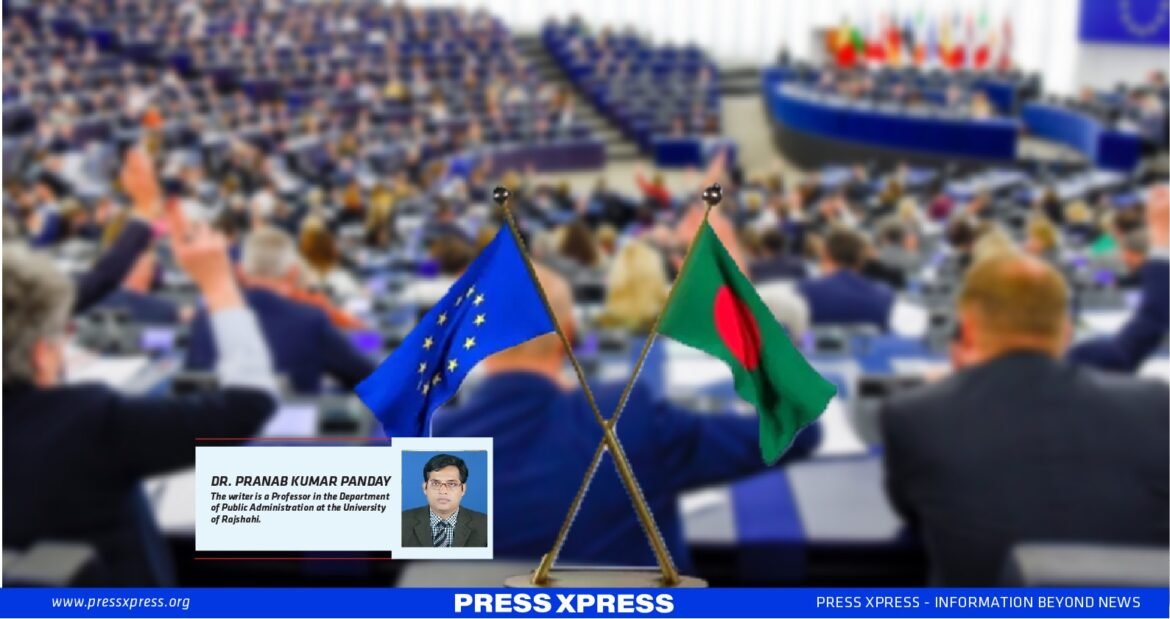The recent joint motion for a resolution in the European Parliament, calling for guarantees from the Bangladesh government for a free and fair parliamentary election in 2024, raises debates. At the same time, the European Parliament has expressed their concern about the human rights situation in Bangladesh and called for the Bangladeshi government to withdraw all legal cases against Human Rights Organization-Odhikar, particularly in light of the recent sentencing of its chief, raises important questions about the boundaries of freedom of expression and the role of international entities in addressing such matters. While the European Union (EU) has a commendable commitment to upholding human rights globally, it is essential to critically assess whether such a resolution is the most effective way to address the issues at hand.
You can also read: Sheikh Hasina’s Vision for Empowering Women
It is essential to acknowledge that freedom of expression and the work of human rights organizations play a vital role in any democratic society. These organizations often act as watchdogs, scrutinizing the actions of governments and other institutions to ensure transparency and accountability. However, the Odhikar case in Bangladesh revolves around allegations of disseminating false information regarding the number of deaths during the 2013 Hefazat-e-Islami rally. The credibility of any organization, including human rights groups, relies on the accuracy of the information they provide. If it is proven that Odhikar published false information, it raises ethical and legal concerns.
Many media houses conducted independent inquiries into Odhikar’s claims and discovered discrepancies, with numerous individuals listed as deceased found to be alive. This revelation underscores the importance of ensuring the accuracy of information disseminated by human rights organizations, while also emphasizing the need for a fair and transparent legal process to address any potential misconduct. The spread of false information not only damaged the government’s reputation but also fostered a feeling of dissatisfaction among the populace of Bangladesh.
Therefore, the EU Parliament’s appeal for the withdrawal of legal cases against Odhikar must be evaluated within the context of respecting the rule of law in Bangladesh. It is essential to strike a balance between supporting freedom of expression and respecting the legal system’s procedures and decisions. If Odhikar’s actions are deemed to have violated Bangladeshi laws, the government has the right to pursue legal actions. The EU Parliament can appeal to the Bangladeshi government to ensure that the legal proceedings are conducted transparently and fairly, upholding the principles of justice and human rights. However, requesting the dismissal of legal charges may not be advisable.
The Odhikar case highlights the complex interplay between freedom of expression, accountability of human rights organizations, and the rule of law. The EU Parliament’s appeal should seek to ensure that any legal actions taken are conducted with fairness and adherence to international standards, while also respecting Bangladesh’s sovereignty and its legal system’s authority. Therefore, the write-up argues why a more constructive approach should be taken by the EU, respecting Bangladesh’s sovereignty as an independent nation.
Bangladesh is a sovereign nation with its own government, constitution, and legal framework. International interference in the internal affairs of a sovereign country can be perceived as an infringement on its sovereignty. It is crucial for the EU to respect the principles of international law and the sovereignty of nations. Constructive engagement through diplomatic channels would be a more appropriate way to address these concerns.
Instead of issuing resolutions that could be seen as confrontational, the EU should focus on fostering dialogue and cooperation with the Bangladesh government. Encouraging bilateral discussions and negotiations can lead to a more positive and collaborative approach towards addressing human rights issues. Such dialogue may also provide an opportunity for the EU to better understand the complexities of Bangladesh’s political and social context.
The EU can continue to support civil society organizations in Bangladesh without resorting to resolutions that may be seen as punitive. Supporting these organizations in their efforts to defend human rights can have a more significant and lasting impact on the ground. Providing resources, training, and platforms for civil society to engage with the government can help create an environment conducive to positive change.
Bangladesh is an important regional player in South Asia. Any unilateral actions by the EU that strain relations with Bangladesh could have broader implications for regional stability. It is in the EU’s interest to maintain good diplomatic ties with all nations in the region and to promote peaceful solutions to regional conflicts.
Thus, the EU should reconsider its approach. A more constructive and diplomatic engagement with Bangladesh, respecting its sovereignty, is likely to yield better results in addressing human rights issues. Otherwise, such an initiative may be viewed as an unwarranted intrusion into Bangladesh’s internal politics. While the EU parliament can raise the concerns, the solutions should be found through diplomatic channels and respectful engagement with the Bangladeshi government. Unilateral resolutions can damage bilateral relations and hinder constructive dialogue between nations.
The line between advocating for human rights and meddling in internal politics can indeed be blurry. Striking the right balance is challenging. However, it is crucial for international bodies to be cautious in their approach, respecting the sovereignty of nations while still championing fundamental human rights.


